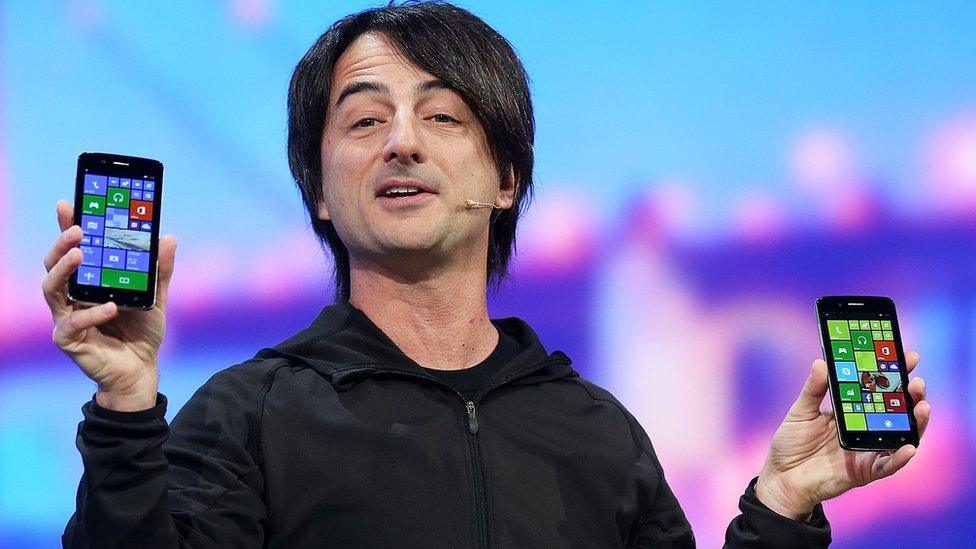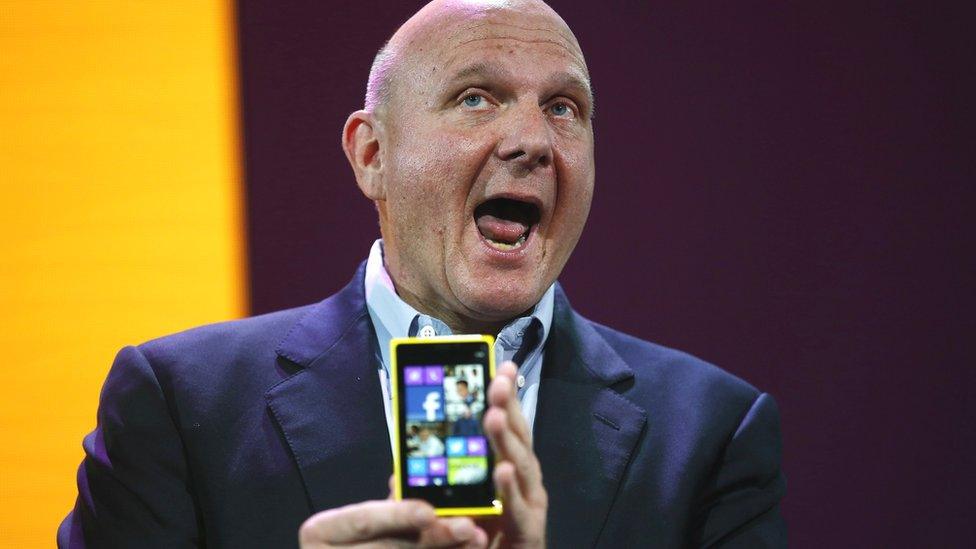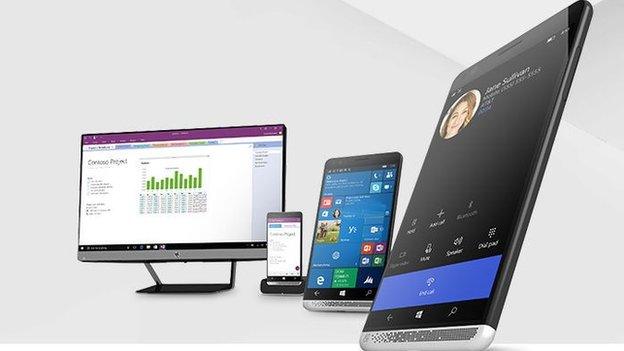Microsoft scraps Finland phone unit
- Published

Microsoft acquired its handset division in 2014
Microsoft has confirmed it will close its mobile phone unit in Finland, cutting 1,350 jobs.
The US software giant paid $7.2bn (£5.5bn) for Nokia's handset business in 2014, but failed to make a success of new devices.
In May, Windows-powered smartphones accounted for fewer than 1% of global smartphone sales.
One industry analyst suggested the firm was too late to the market.

Windows Phones failed to capture the market
"They spent all that money because they recognised that the smartphone market was important," said Eddie Murphy, telecoms analyst at Priory Consulting.
"They were right - but just too late. Apple and Android devices have dominated the space and Windows hasn't made an impact."
One of the problems Microsoft faced was the so-called "app gap"- a shortage of popular titles appearing on its smartphones. The problem also blighted Blackberry's BB10 operating system.
"It was a tremendous problem," said Mr Murphy. "I have a lot of sympathy because I have a Windows phone and the number of apps is very small in comparison to Android. That was a real disadvantage for Microsoft."
'Best interests'
The job losses were initially announced in May as part of a plan to close 1,850 posts in Microsoft's smartphone business.
The firm's latest operating system Windows 10 can still be used to power smartphones and in February computing giant HP announced a smartphone running Windows 10 that could transform into a desktop PC.
"I think they have looked at what Google did with Android. The dominance of the Android platform is because it is open and other companies can use it," said Mr Murphy.
"One of the things Microsoft has done is introduce the common Windows 10 platform, that allows apps to work across desktop, tablet and mobile. It's a good idea and hopefully one that will generate some new apps for the platform.
"I hope we haven't seen the last of Windows Phones. Having more platforms in the market is in the best interests of consumers."
- Published1 June 2016

- Published22 February 2016
